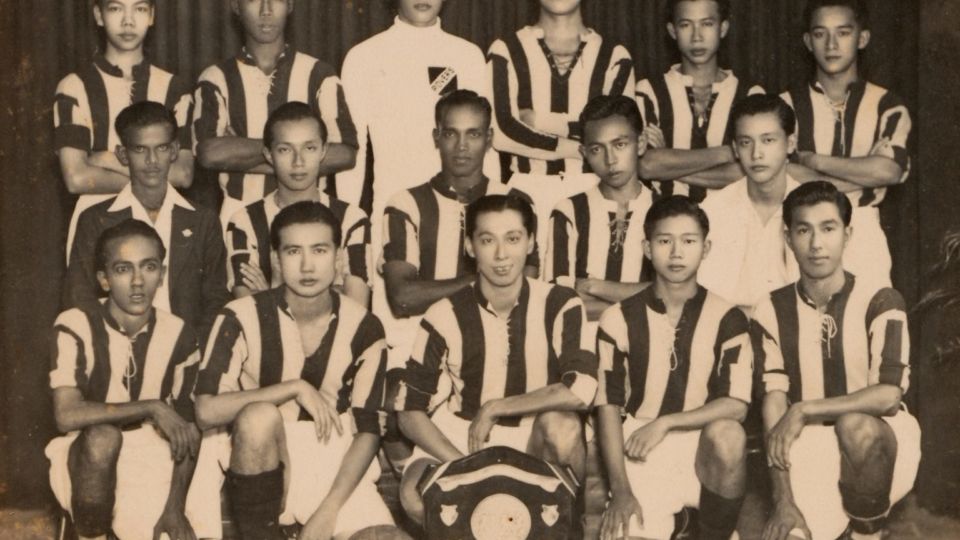This year marks 80 years since Singapore fell to the Japanese in 1942. One area of the occupation years that hasn’t been covered as much is sport when the second world war came to Singapore. We might not think that sport would have had a place in times of war, but in fact it had played a significant role in improving the morale of athletes, people and prisoners of war, according to author Dr Nick Aplin. Dr Aplin (Deputy Director of Sport Heritage, Sport Singapore) who recently held talks at the Singapore Sports Museum and Sports Hub Library on what the local sporting scene was like from 1942 to 1945, and shared on how sport was very much alive during these tumultuous times.
Presented by Sport Singapore, the talk was held in conjunction with ‘Sport in Syonan: Triumph Over Despair’, an inaugural digital exhibition, which is based on Dr Aplin’s book ‘Sport in Singapore: The Colonial Legacy’.
It was an opportunity to discover some of Singapore’s most prolific athletes during the era. Does the name Chia Boon Leong ring a bell? Avid football fans might recognize him as one of the founding members of the Pasir Panjang Rovers. Post-war, Chia played football at the 1948 London Olympics, representing China, and remains till today the only Singaporean to have taken to the field at the olympic games. Like Chia, many athletes who continued playing sports and training despite the tough conditions of the occupation years demonstrated tenacity and fortitude.
Dr Aplin also shared how sports served as a distraction from the grim reality of incarceration for many prisoners of war at Changi POW camp, and as a means for these prisoners to build resilience. Many types of sports were played, including rugby, basketball and boxing. Cricket was quite popular among Australian and British soldiers, and among them were some highly-skilled Australian cricketers and county cricketers from England.
However, football proved to be the most popular overall. Both players and officials took the games and its rules seriously, and football was the only game to survive a ban imposed for aggressive gameplay. There were even guidelines in place about the ‘transfer’ of players from ‘club’ to ‘club’ except in this case, these transfers sometimes involved bowls of rice bartered for players.
The exhibition ‘Sport in Syonan: Triumph Over Despair’ is now on. Visit it to learn more about Singapore’s rich and fascinating sporting history. Don’t miss out!





